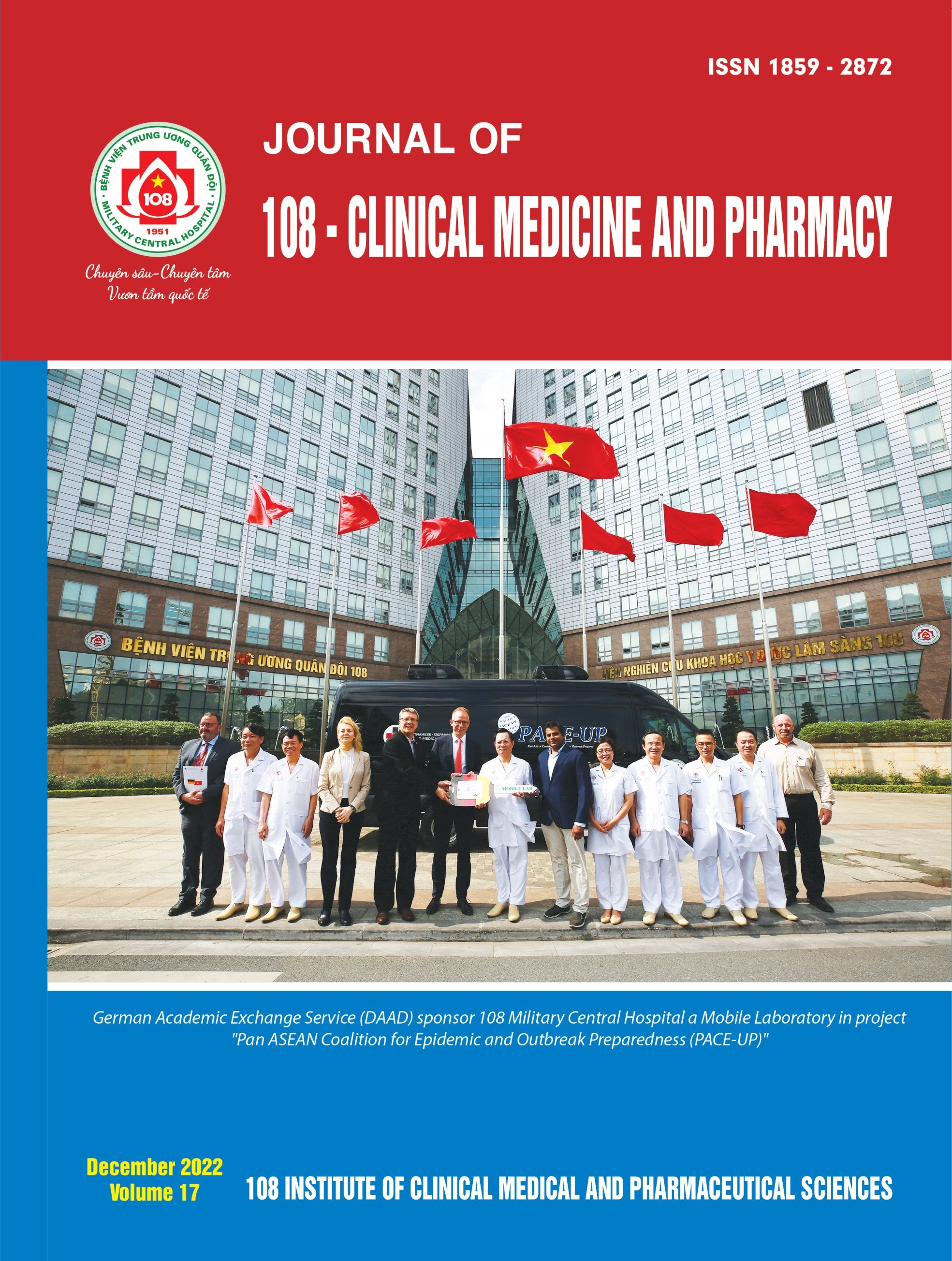Incidence and risk factors for urinary tract infection in the first year after kidney transplantation at 108 Military Central Hospital, Vietnam
Main Article Content
Tóm tắt
Objective: To determine the incidence of urinary tract infections in kidney transplant patients in our hospital, to identify the microbial pathogens, risk factors for urinary tract infection. Subject and method: Primary kidney transplant patients at 108 Military Central Hospital with full follow-up records in the first year were included in the study. Age, sex, cause of kidney failure, pre-transplantation treatment measures, post-transplantation immunosuppressive regimen were collected. Patient was followed and midstream urine was cultured monthly. Result: There were 94 kidney transplant patients included in our study. Seventy patients (74.5%) were male and 24 (25.5%) were female. One hundred and two episodes of urinary tract infections in 37 patients (39.4%) were reported. Sex (female) (p=0.003; 95% CI: 1.716-14.021), urologic complications (p=0.006, 95% CI: 0.001-0.320) were found as risk factors for UTI in the first year of transplantation. Escherichia coli and Klebsiella pneumoniae were the most frequently isolated pathogens. UTI had no negative impact on short-term graft survival. Conclusion: The results of our study showed a high incidence of UTI in kidney transplant recipients. Infection control methods should be used regularly during post-transplant therapy.
Article Details
Các tài liệu tham khảo
2. Gozdowska J et al (2016) Urinary tract infections in kidney transplant recipients hospitalized at a transplantation and nephrology ward: 1-year follow-up. In Transplantation proceedings. 2016. Elsevier.
3. Alevizakos M, Nasioudis D, and Mylonakis E (2017) Urinary tract infections caused by ESBL‐producing Enterobacteriaceae in renal transplant recipients: A systematic review and meta‐analysis. Transplant Infectious Disease 19(6): 12759.
4. Gołębiewska JE, Dębska‐Ślizień A, and Rutkowski B (2014) Urinary tract infections during the first year after renal transplantation: One center's experience and a review of the literature. Clinical transplantation 28(11): 1263-1270.
5. Olenski S et al (2019) Urinary tract infections in renal transplant recipients at a quaternary care centre in Australia. BMC nephrology 20(1): 1-7.
6. Bodro M et al (2015) Impact of antibiotic resistance on the development of recurrent and relapsing symptomatic urinary tract infection in kidney recipients. American Journal of Transplantation 15(4): 1021-1027.
7. Kiros T et al (2019) Bacterial urinary tract infection among adult renal transplant recipients at St. Paul’s hospital millennium medical college, Addis Ababa, Ethiopia. BMC nephrology 20(1): 1-7.
8. Behzad D et al (2020) A middle east systematic review and meta-analysis of bacterial urinary tract infection among renal transplant recipients; Causative microorganisms. Microbial Pathogenesis 148: 104458.
9. Brakemeier S et al (2017) Extended-spectrum beta-lactamase producing enterobacteriaceae–related urinary tract infection in kidney transplant recipients: Risk factors, treatment, and long-term outcome. in Transplantation Proceedings. Elsevier.
 ISSN: 1859 - 2872
ISSN: 1859 - 2872
